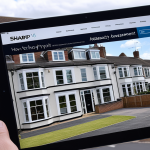Transforming Daily Routines with UK Technological Innovations
Technology’s imprint on daily life in the UK is profound, fueled by UK tech advancements that steer digital transformation. Smart devices such as AI-powered assistants and interconnected home systems simplify tasks, offering seamless control over lighting, temperature, and security at a voice command or smartphone tap.
Automation further revolutionises mundane activities, from robotic vacuum cleaners navigating living rooms to smart fridges that monitor groceries, reducing manual effort. The pace of adoption varies but is accelerating, propelled by increasing affordability and user-friendly designs tailored for diverse households across the UK.
Also to discover : How Can Technological Innovations Shape the Future of Education in the UK?
Accessibility remains a priority: innovations are engineered to cater to all demographics, promoting inclusivity in tech usage. This ensures digital transformation touches every facet of everyday life, enhancing convenience without alienating less tech-savvy users.
These UK tech advancements enhance not only convenience but energy efficiency and safety, establishing a framework for future living. By integrating smart technologies into homes, people enjoy more efficient routines and smarter resource use, setting the stage for a connected, responsive lifestyle that defines modern UK life.
Have you seen this : How Can Recent Innovations in UK Technology Impact Education?
The Evolving Landscape of UK Work and Education
Digital transformation is reshaping the future of work across the UK. AI and automation streamline repetitive tasks, freeing employees to focus on strategic decision-making. This shift is driving the rise of digital workplaces, where cloud-based collaboration platforms enable remote working and agile team management. Remote learning is becoming mainstream, supported by UK education technology that offers interactive, tailored curricula accessible from anywhere.
How is AI impacting education? By facilitating personalised learning paths based on individual progress, AI tools address diverse student needs, improving engagement and outcomes. Additionally, work environments embrace digital tools that foster seamless communication regardless of location, helping firms adapt to evolving labour markets.
Upskilling and lifelong learning are critical responses to this technological change. Workers are encouraged to continually update skills through online courses and virtual training platforms, ensuring they remain competitive in an automated economy. Government and private sectors invest in digital education initiatives, promoting an inclusive approach to workforce development. These UK tech advancements in educational infrastructure and workplace digitisation prove pivotal for preparing the country’s workforce for the demands of modern industries.
The Evolving Landscape of UK Work and Education
UK tech advancements are transforming the future of work by integrating AI and automation into digital workplaces. Automated systems now handle routine tasks, freeing employees to focus on creative and strategic work. This shift enhances productivity and reshapes job roles across sectors, enabling more flexible and efficient working environments.
In UK education technology, digital platforms facilitate remote learning, allowing students to access quality instruction anywhere. These tools include interactive lessons, real-time assessments, and collaboration features that enliven daily life for learners and educators alike. As digital transformation accelerates in schools and universities, education becomes more tailored and adaptable.
Upskilling and lifelong learning opportunities are also expanding due to digital workplaces. Employees can engage with online courses and training modules that keep skills relevant in an evolving job market. This supports continuous professional growth, ensuring individuals and organisations thrive amid rapid technological change.
Adoption pace varies regionally but grows steadily, with accessibility being a priority. Inclusive design ensures learners and workers from different backgrounds and abilities benefit equally from these UK tech advancements, reinforcing an equitable approach to the future of work and education.
Transforming Daily Routines with UK Technological Innovations
Integrating UK tech advancements into daily life is reshaping how households function, blending AI and smart devices seamlessly. For example, AI-powered assistants coordinate multiple smart home gadgets, adjusting lighting, heating, and even security settings with tailored responses to users’ habits. This represents a core element of digital transformation that simplifies daily management tasks and adds convenience.
Automation enhances efficiency by tackling repetitive chores. Robotic vacuum cleaners and smart kitchen appliances illustrate how automation reduces manual work, freeing time for more meaningful activities. In many UK homes, these technologies adjust dynamically, learning and anticipating resident needs over time.
The adoption pace of such innovations varies. While some embrace rapid integration, others face accessibility challenges, including usability for older adults or affordability concerns. However, manufacturers increasingly focus on creating inclusive designs that accommodate diverse demographics, ensuring technology adoption grows steadily across the population.
In this evolving landscape, UK tech advancements not only streamline routines but also contribute to energy-saving and sustainable homes. By embedding intelligence in everyday devices, digital transformation in domestic environments sets the pace for future living concepts centred on comfort, efficiency, and responsiveness.
Transforming Daily Routines with UK Technological Innovations
UK tech advancements are revolutionising daily life by integrating smart devices and AI into homes. Smart assistants and connected appliances enable effortless control over household functions like lighting, heating, and security with simple voice commands or smartphone apps. These technologies create a seamless interface between users and their home environments, elevating convenience.
Automation is a significant driver of digital transformation in UK households. Robotic vacuum cleaners and smart kitchen gadgets reduce time spent on routine chores, allowing residents to focus on other activities. This shift not only saves time but also promotes energy efficiency by optimising device usage based on user habits.
Adoption pace has accelerated due to increased affordability and improved accessibility. UK tech advancements prioritise inclusive design, ensuring that even less tech-savvy individuals can benefit. Moreover, rural and urban areas alike are seeing growth in smart device usage, although disparities remain.
Collectively, these innovations contribute to future living concepts characterised by connected, adaptable, and user-centric homes. The digital transformation embedded in daily routines signals a move toward environments that anticipate and respond dynamically to residents’ needs, redefining comfort and efficiency.
Transforming Daily Routines with UK Technological Innovations
Integrating UK tech advancements into daily life reshapes how households operate by embedding smart devices and AI for seamless control. Devices like AI assistants coordinate multiple functions—from adjusting lighting to managing heating—anticipating preferences and learning routines. This advanced interaction exemplifies core digital transformation elements enhancing convenience.
Automation significantly impacts everyday tasks by reducing manual effort. For example, robotic vacuum cleaners autonomously clean living areas, while smart kitchen appliances optimise cooking through sensor-driven adjustments. These devices adapt over time, reflecting the continuous evolution of future living within UK homes.
The adoption pace of these innovations varies, influenced by accessibility factors such as affordability and design usability. Manufacturers prioritise inclusive features, ensuring technology benefits broaden across diverse demographics. This focus supports gradual yet steady integration of smart technology into UK households.
Together, these UK tech advancements not only simplify routines but also bolster energy efficiency and sustainability. By embedding intelligence into everyday devices, digital transformation helps create responsive homes that define the emerging paradigm of future living—efficient, comfortable, and connected.
Transforming Daily Routines with UK Technological Innovations
The integration of UK tech advancements into daily life increasingly centres on smart devices and AI, creating more intuitive household environments. Smart home hubs coordinate lighting, heating, and security through predictive algorithms that learn user preferences, thus advancing digital transformation beyond simple automation.
Automation profoundly influences daily tasks by streamlining repetitive chores. Robotic vacuum cleaners and smart kitchen appliances adapt their routines based on user patterns, reducing manual intervention. This shift not only saves time but also enhances energy efficiency—devices optimise power use when residents are away, aligning with sustainable future living models.
Adoption pace reflects ongoing efforts to increase accessibility in UK homes. Factors such as ease of use, affordability, and inclusive design are critical to ensuring broad uptake. For instance, voice-activated systems assist older adults or those with mobility challenges, demonstrating how UK tech advancements address diverse household needs.
This technological evolution represents a move toward adaptive living spaces that respond dynamically to occupants. By embedding intelligence within everyday tools, digital transformation is transforming UK households into spaces defined by convenience, efficiency, and improved quality of life.
Transforming Daily Routines with UK Technological Innovations
UK tech advancements are deeply transforming daily life through the integration of smart devices and AI in households. These technologies automate routine tasks such as lighting control, climate regulation, and security management by learning user habits, creating a personalised and responsive home environment. How does this automation affect everyday tasks? It reduces manual effort significantly, allowing residents to focus on more meaningful activities while devices like robotic vacuum cleaners and smart kitchen appliances operate independently.
The adoption pace of these innovations varies across the UK, with urban areas typically leading due to better infrastructure and affordability. Accessibility remains a priority: manufacturers are designing devices with intuitive interfaces and inclusive features to ensure that even less tech-savvy users can benefit. This inclusive approach supports broader digital transformation.
Moreover, these advances contribute to future living concepts by improving energy efficiency and sustainability in homes. Smart devices optimise resource use by adjusting operations based on real-time data, reducing waste and lowering costs. Overall, UK tech advancements are not only simplifying routines but also shaping a connected lifestyle aligned with the demands of modern living.
Transforming Daily Routines with UK Technological Innovations
Smart devices and AI form the backbone of UK tech advancements reshaping daily life. Integration of AI-powered assistants enables households to coordinate multiple tasks—adjusting lighting, heating, and security—with a level of personalisation that learns user habits over time. This degree of integration exemplifies the ongoing digital transformation enhancing convenience and user interaction.
Automation plays a pivotal role by significantly reducing manual intervention in routine chores. Robotic vacuum cleaners autonomously maintain cleanliness, while smart kitchen gadgets use sensors to optimise cooking and energy consumption. These devices dynamically adapt, reflecting growing sophistication in future living models that prioritise efficiency and user comfort.
Accessibility and adoption are crucial; manufacturers focus on inclusive designs to broaden appeal. This includes user-friendly interfaces and affordability improvements to overcome barriers faced by less tech-savvy demographics. As a result, technology permeates urban and rural UK homes at increasing rates, driving steady, inclusive adoption.
Thus, these UK tech advancements not only simplify daily routines but also promote energy efficiency and sustainability, marking a crucial step toward intelligent homes designed for the future.
Transforming Daily Routines with UK Technological Innovations
UK tech advancements continue to weave AI and smart devices into the fabric of daily life, marking significant strides in digital transformation. Smart home systems now go beyond basic automation by integrating learning algorithms that adapt to residents’ schedules, enabling devices to anticipate needs rather than simply react. For example, intelligent thermostats adjust heating based on real-time occupancy patterns, significantly conserving energy while maintaining comfort.
Automation’s role in everyday tasks extends to more sophisticated functions like smart kitchen appliances that suggest recipes using available ingredients, or robotic cleaners that map rooms for efficient coverage without human oversight. This level of task management reduces manual involvement, illustrating how future living is evolving toward intuitive, self-managing environments.
The adoption pace across UK households reflects a mix of enthusiasm and barriers. Urban homes often lead due to stronger connectivity and accessibility, while rural areas may face hurdles such as network limitations. Accessibility remains a core focus of UK tech advancements, with user-friendly interfaces and affordable options designed to widen inclusion. This ensures that digital transformation reaches diverse populations, promoting equitable access to the benefits of smart living.




